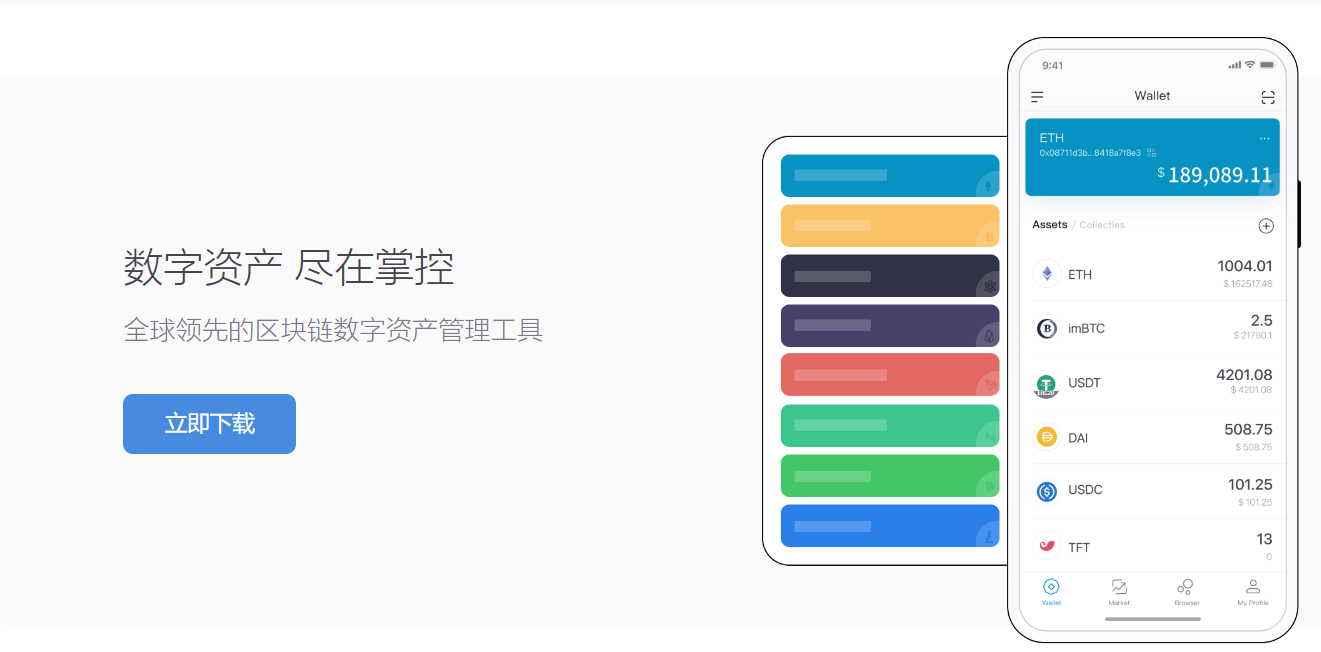Current and future development of crypto wallets
Blockchain technology has a strong appeal in the fintech industry, with digital asset exchanges and crypto wallets seeing a surge in usage as the international reach of blockchain technology increases. In the blockchain application scenario, crypto wallets are the first to be used on the ground and are a key infrastructure for cryptocurrencies, while every way of trading cryptocurrencies relies on crypto wallets for their transactions. According to data provided by Blockchain.com, the number of users of crypto wallets reached 3.4 million in March 2019, an increase of 1.47% over the previous year. Starting with the explosion of DeFi in 2020 and the explosion of Web 3.0 applications such as NFT and DAO this year, putting assets in crypto wallets is a very big immediate need and crypto wallets have become a popular choice for people to store their assets.

What is a crypto wallet?
A crypto wallet is not a wallet in the traditional sense. Cryptocurrencies are decentralised, so a crypto wallet does not hold money inside, but is used to hold an address and private key. When you buy bitcoin or any other cryptocurrency, the crypto wallet is your identity, and its address is how your purchase or sale is recorded on the blockchain.
A crypto wallet is made up of many parts, usually including: wallet account, public key address (account), blockchain network, base tokens, contract tokens, sending/receiving, transactions, application and other parts. The wallet account is the subject of authentication for the wallet application, and the loss of the account means the loss of assets; the public key address is the subject of asset storage on the individual’s chain, all tokens are eventually associated to a specific account address, and the subject of all transactions is also the account address.
The year 2022 belonging to cryptocurrencies has arrived and users need a fully functional crypto wallet in addition to using exchanges to invest. There are not many excellent and comprehensive products among the many options in the market, based on the usability that is more suitable for users on a daily basis, here are a few cryptocurrency wallets analysed to ease the decision-making process by comparing the advantages and disadvantages of each crypto wallet.
Crypterium
Crypterium is a convenient way to manage called crypto data sets in combination with payment/transaction systems, it is not only (creating) a cryptocurrency wallet, but also a full-fledged “bank” offering professional services to customers (crypto lending) / developers (open platforms) / businesses (crypto access). Its multi-currency wallet infrastructure offers a more advanced set of services than most competing platforms offer, with third-party insured security, virtual savings accounts, physical card integration, conversion to fiat currency and more.
The Benefits
Offers a cold wallet and funds insurance service
Offers a personal interest-bearing virtual savings account
Comes with fiat currency conversion
Well-designed user interface
Supports virtual/physical card functionality
Allows legal tender purchases
Disadvantages
Average customer service, slow replies cause communication problems
Cumbersome transaction restrictions
Trust
Mobile wallet powered by Cryptocurrency, the wallet is designed to integrate with Ether, meaning excellent compatibility with ERC20/BSC tokens, plus users can access the wallet without having to submit personal information or extend KYC, also accesses exchange integration to purchase cryptocurrencies directly on it.
Benefits
Ideal for use as an ERC20 / BSC wallet
Decentralised
No additional fees
Privacy conscious
Disadvantages
- It does not support non-Ethernet cryptocurrencies such as Bitcoin
Coinbase Wallet
The wallet is easy to use, intuitive, supports most of the top cryptocurrencies and offers best-in-class security, and it integrates well with the larger Coinbase ecosystem. So, depending on your location, you can buy cryptocurrencies, trade and access related services offered by Coinbase.
Benefits
Simple and intuitive
Highly secure
Integrated with a strong crypto ecosystem
Disadvantages
- Supports only a few top cryptocurrencies
BIYAPAY
BIYAPAY is a blockchain technology-based cross-border remittance software that provides convenient and low-cost cross-border remittance services for institutions and individuals. It supports the storage of 25 cryptocurrencies as well as over 20 fiat currencies, including USD, HKD, GBP, SGD, EUR and other major fiat currencies, making it easier to keep track of several different portfolios, in addition to having built-in fiat currency exchange, savings and wealth management features. BIYAPAY’s customer service is a one-to-one type of guided tour service, and due to the large number of features, customer service staff The customer service staff will help you step by step to show you how to operate, but it is only available in Chinese and English.
Advantages
It supports a wide range of cryptocurrencies and fiat currencies
It offers multi-currency conversion
First class customer service
Disadvantages
- Fewer languages supported
Exodus
Exodus is the first desktop multi-currency wallet with shapUNK built in, a user-friendly interface and ease of use. exodus gives blockchain asset investors a platform to easily acquire, exchange and manage their digital wealth, plus it does not implement custom fees for cryptocurrency-based transactions or have the option to activate 2FA.
Pros
Supports multiple cryptocurrencies
Easy to use
Disadvantages
No 2FA
No custom fee option for cottage coins
Luno
Luno wallet is a bitcoin wallet that stores digital assets on an exchange, renamed from the bitcoin trading platform BitX, it supports the purchase of cryptocurrencies using fiat currencies including NGN, EUR, ZAR, IDR and MYR, Luno has partnered with BitGo to improve the security of user funds and implement 2FA for a more secure authentication system, the only downside is the instant The only downside is the inconsistent transaction fees charged for instant purchases.
Pros
Ideal for emerging markets
Has a built-in exchange function
Easy to use
Strong security infrastructure
Disadvantages
Confusing fee policy
Only supports a few cryptocurrencies
As you can see, each crypto wallet has its own strengths and weaknesses. Before choosing a wallet, it is important to confirm your own needs for the wallet. In addition to choosing a reliable crypto wallet, the most important thing is to raise your own security awareness, such as protecting your wallet key, transferring your assets, changing your password, giving feedback to the trading platform, etc. if your mobile phone or computer device is stolen.
Crypto wallets not only enable you to increase your wealth, but they also interconnect with the built-in cryptocurrency exchanges, thus forming an even larger cryptocurrency ecosystem. Crypto wallets offer a one-stop solution for all things cryptocurrency, whether it’s crypto investing, trading across exchanges, or converting fiat currency to cryptocurrency, crypto wallets allow you to do anything, anytime, anywhere.
Today, crypto wallets are becoming increasingly popular as they make users’ crypto assets more secure and transactions more convenient. Many thought that it would be many years before the user experience of cryptocurrencies and DApps would reach the point where they would be available through the world, but the truth is that a great breakthrough in terms of user experience has been made in the past year, and it only needs to be implemented on currently available wallets.
In perhaps the near future, existing web browsers will also offer pre-installed crypto wallets for the masses, in which case we will have realised the internet currency dream.




